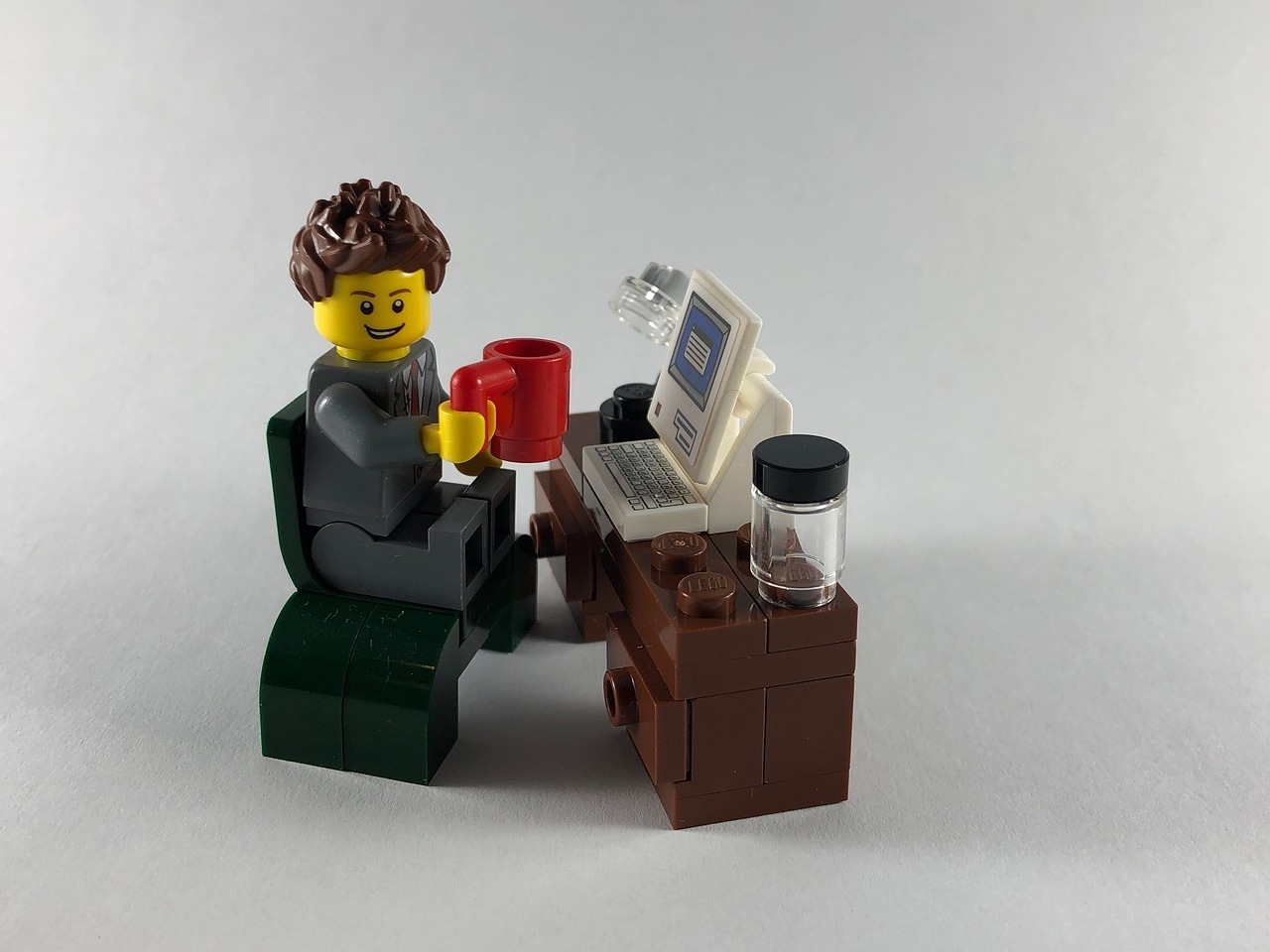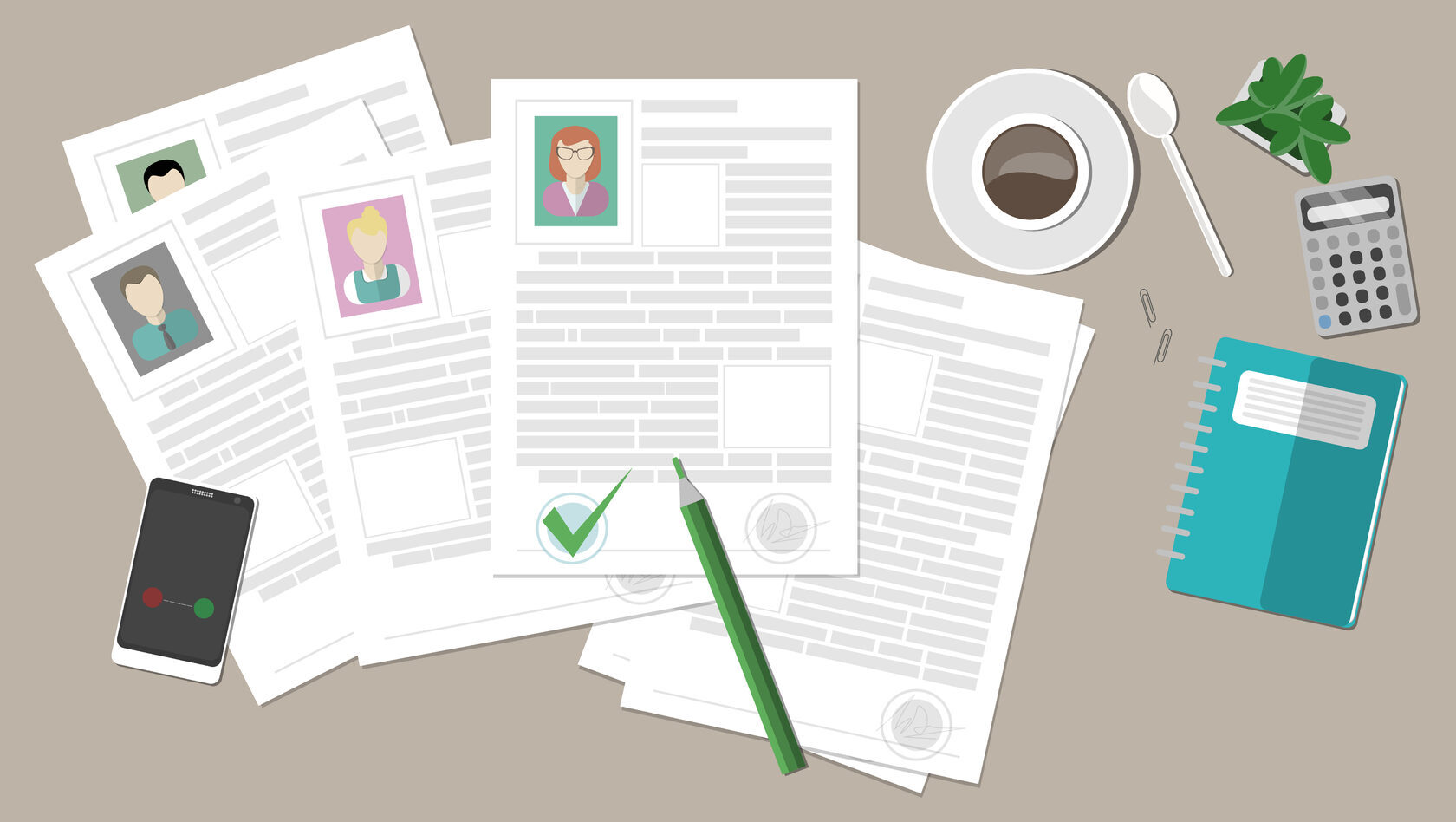
You've decided to start your job search and are ready to explore opportunities. You're now tasked with crafting a compelling resume, responding to job postings, and navigating the interview process to secure your ideal job.
In this article, we'll guide you on where to begin – how to create a strong resume and cover letter that lead to a positive response from recruiters that will invite you to an interview.
In this article, we'll guide you on where to begin – how to create a strong resume and cover letter that lead to a positive response from recruiters that will invite you to an interview.
Caution: There is often confusion between CVs and resumes. Are they distinct documents? Typically, yes. A CV provides an extensive account of education, all professional accomplishments, and more. Meanwhile, a resume offers a concise summary of experience and skills that are relevant for a specific position. Nevertheless, it's common for people to use these terms interchangeably.
Structuring a Resume

The first rule is to include important details in your resume. Sometimes what seems obvious to you might not be clear to others. Keep in mind that recruiters look through hundreds of resumes every day. Therefore, if your resume lacks details about your technical stack, project specifics, and your personal contributions, you might not make it to the interview stage.
When describing your work in each project, use this outline:
When you've worked on a project for less than a year, it can be helpful to explain why your involvement ended. For example, it was a temporary project or the funding ran out.
This is especially important if you've had several short-term jobs on your resume. Potential employers might worry that you tend to change jobs quickly, and they want reassurance that you're committed to your work. By sharing the reasons for leaving shorter-term roles, you can address these concerns and show that you're open and honest about your career experiences.
Keep your resume focused on relevant professional experience when applying for a development job. Exclude unrelated roles like being a courier or an administrator unless they directly relate to the job.
You can create an "About Me" section to show a bit of your personality. Share personal details related to your work, like being a Unity developer with a passion for gaming or actively participating in a competitive esports team. However, only include information that enhances your professional image. For instance, hobbies like swimming, while healthy, may not directly relate to your specialist skills.
When describing your work in each project, use this outline:
- How long you worked on it
- Project name, add a website link (if you have to keep it secret because of a confidentiality agreement, just write "NDA Project")
- What the project was about
- Technology stack employed throughout the project
- Specific technologies you utilized in your role
- Duties and responsibilities you undertook
- Notable accomplishments and milestones achieved within the project (if your contributions can be quantified, include relevant metrics
When you've worked on a project for less than a year, it can be helpful to explain why your involvement ended. For example, it was a temporary project or the funding ran out.
This is especially important if you've had several short-term jobs on your resume. Potential employers might worry that you tend to change jobs quickly, and they want reassurance that you're committed to your work. By sharing the reasons for leaving shorter-term roles, you can address these concerns and show that you're open and honest about your career experiences.
Keep your resume focused on relevant professional experience when applying for a development job. Exclude unrelated roles like being a courier or an administrator unless they directly relate to the job.
You can create an "About Me" section to show a bit of your personality. Share personal details related to your work, like being a Unity developer with a passion for gaming or actively participating in a competitive esports team. However, only include information that enhances your professional image. For instance, hobbies like swimming, while healthy, may not directly relate to your specialist skills.
What should you include in your resume?
When creating a developer's resume, be sure to include these essential elements:
- Projects: Describe your relevant projects, following the scheme mentioned above.
- GitHub link: Provide a link to your GitHub profile. Many recruiters and employers check it to assess your coding skills and contributions. If your work is in private repositories, enable the "Include private contributions on my profile" option to make your code visible.
- Keywords: Use skill keywords in your resume, such as "Java" or "C#," to make it easier for recruiters and employers to find you on online job search platforms. These keywords help match your skills with the requirements of job listings.
- Certificates: They will demonstrate your expertise and qualifications for the job you're applying for. Certificates from well-known companies like Microsoft or Oracle are the best, others will also do.
- Contact Information: Ensure that your contact information, including your email and Skype (if relevant), is readily available in your resume. Easy access to your contact details helps recruiters and HR professionals reach out to you efficiently, thereby improving your chances of being considered for the position.
Resumes for International Work Opportunities
When applying for a job in a foreign country, it's important to take into account and incorporate certain nuances into your resume.
1) Language knowledge. English serves as the primary language of communication within international teams. You will use it for interactions with potential employers during interviews and throughout your entire career. Typically, job listings specify the minimum required level of proficiency expected by the employer. Alternatively, depending on the country and the company, there may be other languages required or preferred as well.
2) Higher education. Sometimes it’s a visa requirement (or not, depending on your citizenship). As for employers, they may react differently. Some don’t want a specialist without a degree. Others will only look at experience and achievements. But if you have it, always state it in your resume
3) International work experience. If you’ve worked in a global team, it’s a significant advantage that sets you apart from other candidates. It shows you're familiar with relocation and the associated challenges.
4) A valid work and residence permit. For instance, if a job opens up in Cyprus and you're already living there with the necessary permits, you stand a better chance of securing the position, as employers often prefer candidates who don't require costly and time-consuming relocation.
1) Language knowledge. English serves as the primary language of communication within international teams. You will use it for interactions with potential employers during interviews and throughout your entire career. Typically, job listings specify the minimum required level of proficiency expected by the employer. Alternatively, depending on the country and the company, there may be other languages required or preferred as well.
2) Higher education. Sometimes it’s a visa requirement (or not, depending on your citizenship). As for employers, they may react differently. Some don’t want a specialist without a degree. Others will only look at experience and achievements. But if you have it, always state it in your resume
3) International work experience. If you’ve worked in a global team, it’s a significant advantage that sets you apart from other candidates. It shows you're familiar with relocation and the associated challenges.
4) A valid work and residence permit. For instance, if a job opens up in Cyprus and you're already living there with the necessary permits, you stand a better chance of securing the position, as employers often prefer candidates who don't require costly and time-consuming relocation.
Structuring a Cover Letter

Don't overlook the importance of including a cover letter when submitting your resume; it serves as your initial point of contact with the recruiter. It's the first thing they see before reviewing your resume, and it's where you can potentially gain an edge over other candidates.
What Should an Effective Cover Letter Look Like?
1) Concise: Keep it short and to the point, taking around 30-60 seconds to read. Avoid unnecessary details and wordiness.
2) Personalized: Tailor each cover letter for the specific job opportunity, emphasizing your relevant qualifications and how they align with the position's requirements.
2) Personalized: Tailor each cover letter for the specific job opportunity, emphasizing your relevant qualifications and how they align with the position's requirements.
In What Cases Should You Write It?
If any of the following situations apply to you, consider writing a cover letter:
- Limited Experience (less than two years): Use the cover letter to showcase your key accomplishments and successes, especially if you have less than two years of professional experience.
- Desire to Join a Specific Company: If you're keen on working for a particular company, emphasize how your skills and values align with the organization. Highlight relevant experience in the company's domain or your shared values.
- Seeking to Stand Out: To ensure your resume sets you apart, it’s important to work on a cover letter.
What Should You Add?
A well-structured cover letter should address the following key elements:
1) Express Your Interest in the Vacancy: It's important to explain why you are drawn to this specific job opening. Even seemingly minor reasons can make a difference and show your genuine interest.
2) Highlight Relevant Experience and Achievements: Concisely emphasize your most significant accomplishments and experiences, particularly those directly related to the job you're applying for. If the job posting mentions specific technologies or tools, add that you’re proficient in them (if it’s true).
3) Acknowledge Missing Experience: If there are gaps, be honest about it. However, also mention how you plan to compensate for the lack of knowledge or skills. Show your willingness to learn or provide alternative competencies that might be relevant.
1) Express Your Interest in the Vacancy: It's important to explain why you are drawn to this specific job opening. Even seemingly minor reasons can make a difference and show your genuine interest.
2) Highlight Relevant Experience and Achievements: Concisely emphasize your most significant accomplishments and experiences, particularly those directly related to the job you're applying for. If the job posting mentions specific technologies or tools, add that you’re proficient in them (if it’s true).
3) Acknowledge Missing Experience: If there are gaps, be honest about it. However, also mention how you plan to compensate for the lack of knowledge or skills. Show your willingness to learn or provide alternative competencies that might be relevant.
What Should You Avoid?
- Retelling your resume: Reiterating the details from your resume in a cover letter is considered ill-mannered and displays a lack of respect for the prospective employer's time and the recruitment team's efforts.
- Using clichés: For instance, mentioning responsibility and punctuality is necessary for a developer, but not the key. And it's crucial to remember that hiring managers typically spend only 30-60 seconds reviewing applications.

Best of luck with your job search and finding great career opportunities!
If you want to improve your job search skills and land a high-paying job in an exciting project, contact us! We offer career services like counseling, resume writing, and interview training.
If you want to improve your job search skills and land a high-paying job in an exciting project, contact us! We offer career services like counseling, resume writing, and interview training.

